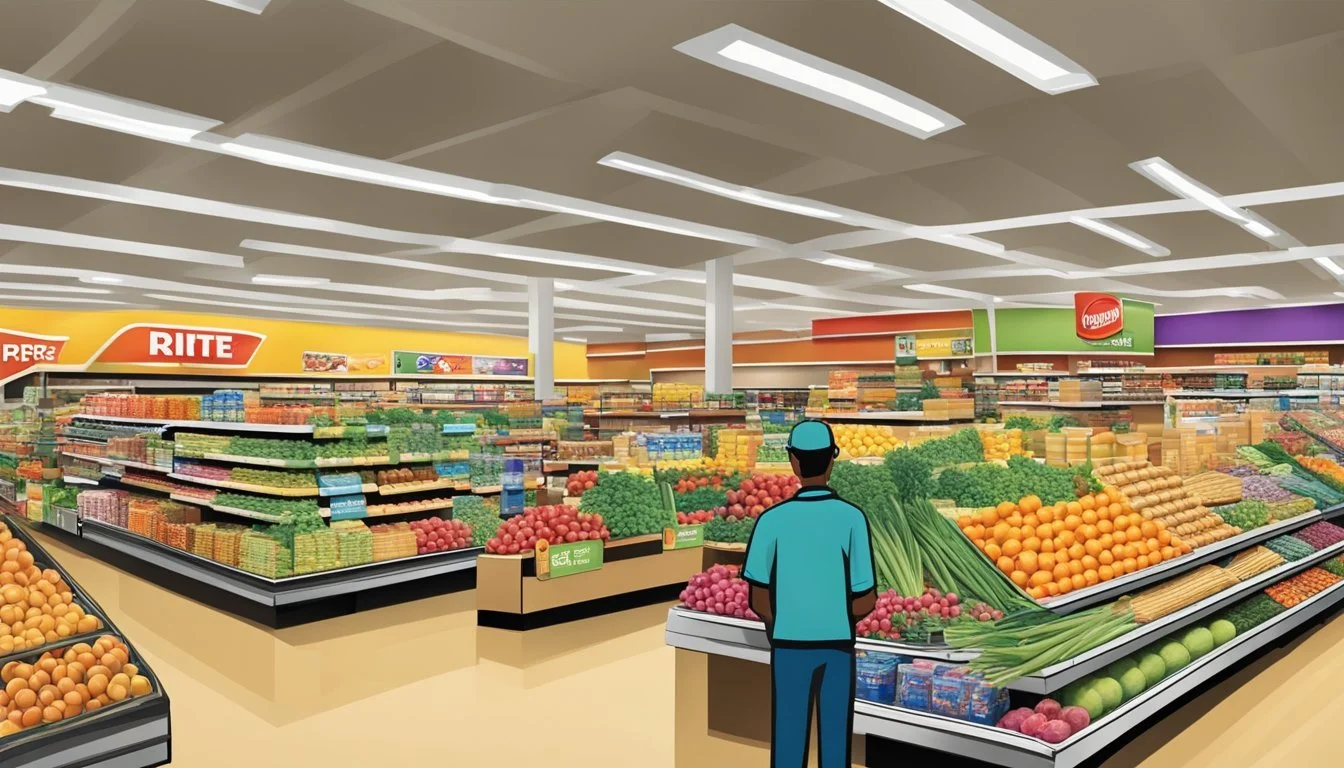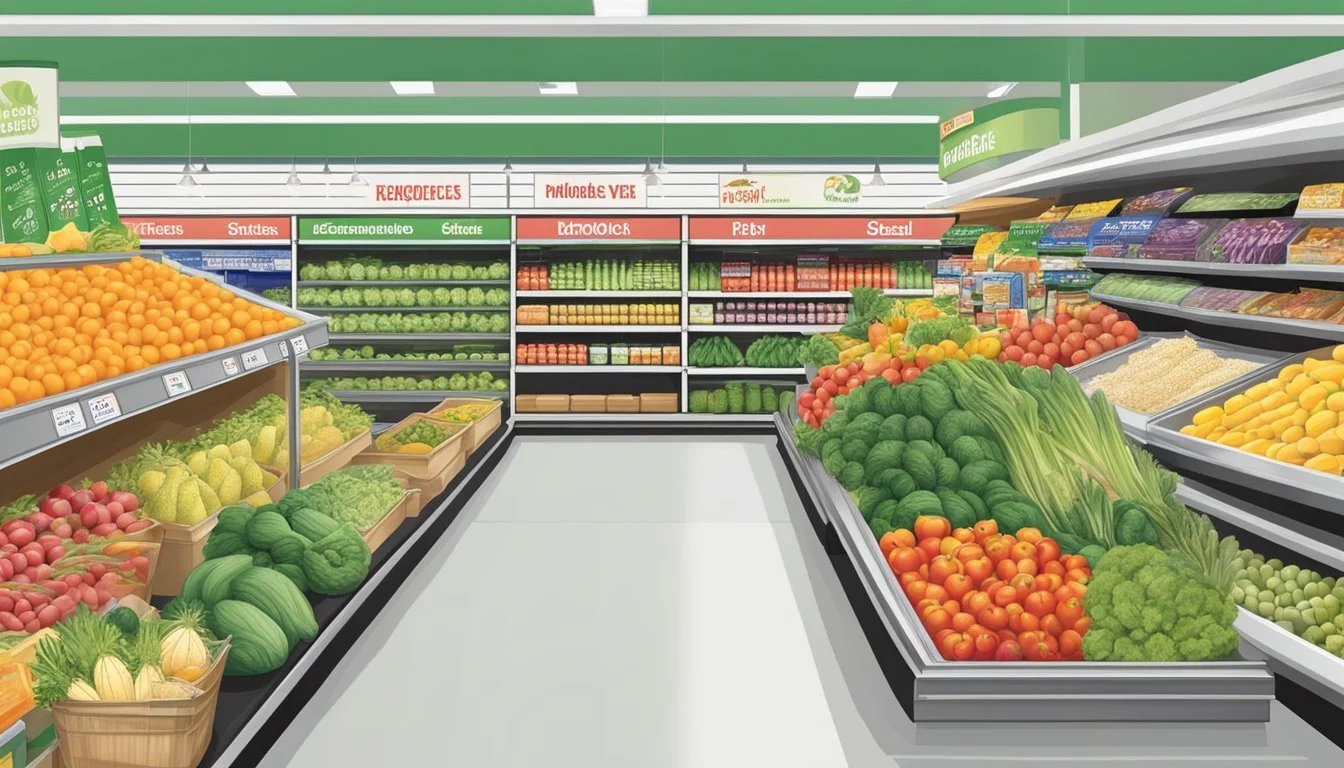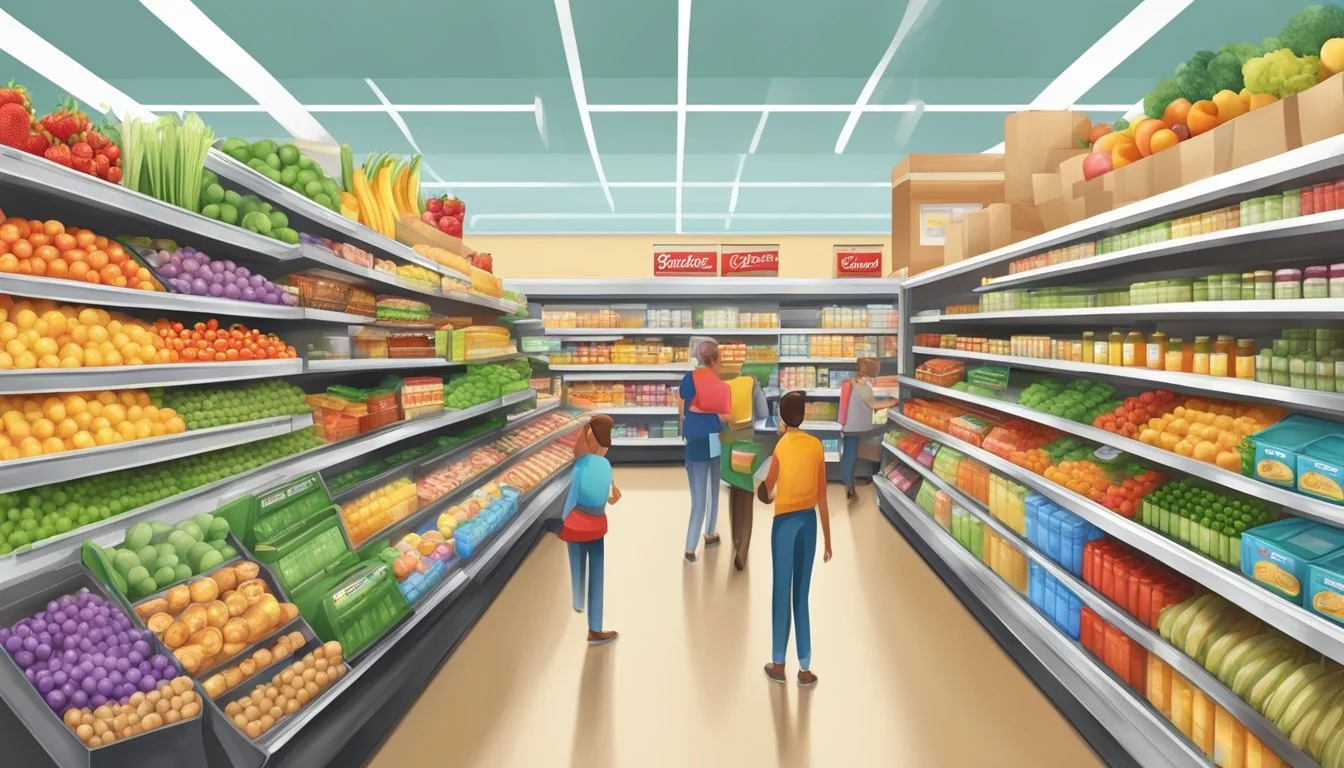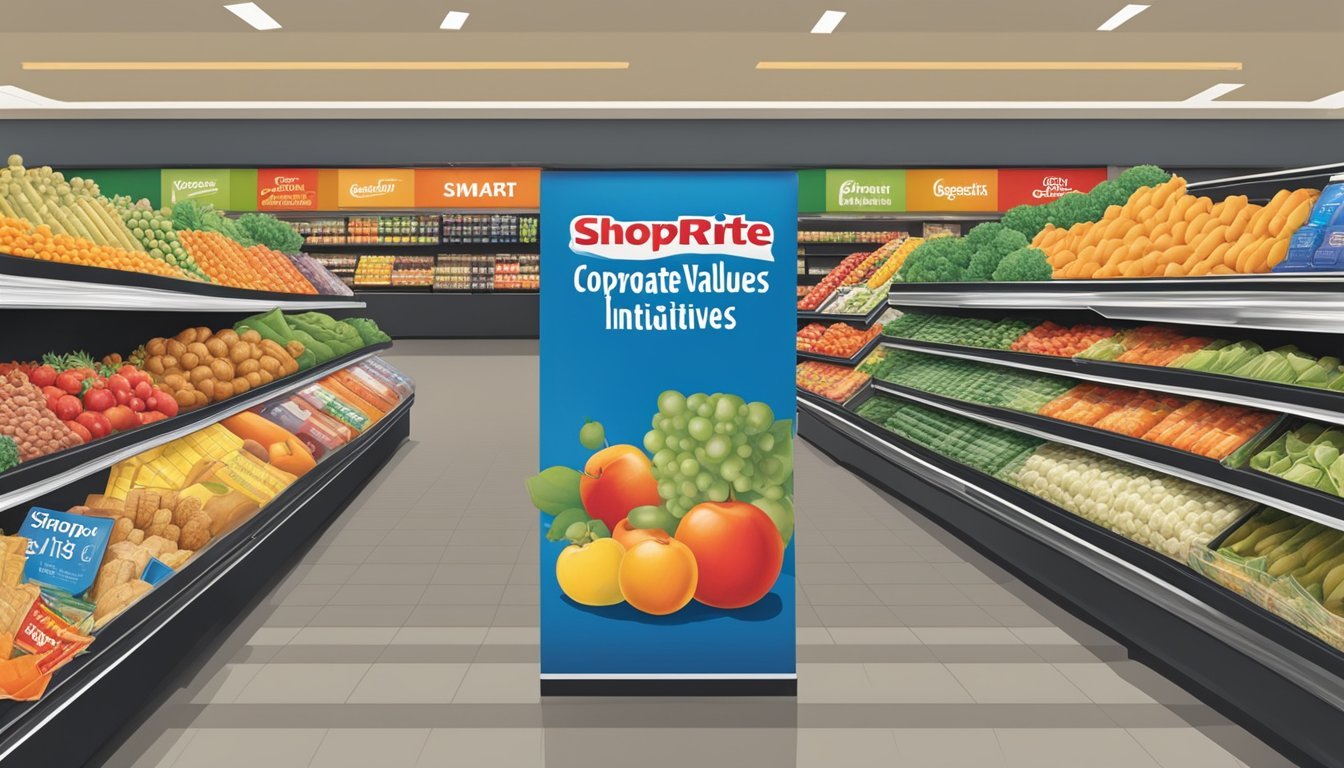Shoprite vs Smart & Final
Comparing Prices, Selection, and Quality
Grocery shopping can be a significant expense for many households, making it crucial to choose the right store for the best value. ShopRite and Smart & Final are two popular options that cater to different shopping needs. Both offer a wide range of products, but their pricing strategies and store layouts differ considerably.
ShopRite tends to offer better overall prices and a wider selection of products compared to Smart & Final. ShopRite's larger stores typically feature more variety in fresh produce, meats, and national brand items. The chain is known for its competitive pricing and frequent sales, which can lead to substantial savings for savvy shoppers.
Smart & Final, on the other hand, positions itself as a hybrid between a warehouse club and a traditional grocery store. It offers bulk purchasing options and caters to both individual consumers and small businesses. While Smart & Final may have lower prices on certain bulk items, its overall selection is often more limited than ShopRite's.
Company Overviews
ShopRite and Smart & Final are prominent grocery retailers with distinct histories and business models. Both companies have evolved significantly over the decades to meet changing consumer needs and market conditions.
History of ShopRite
ShopRite traces its roots back to 1946 when a group of independent grocers formed Wakefern Food Corporation as a cooperative. This allowed them to pool resources and compete more effectively with larger chains. The ShopRite brand was introduced in 1951.
In the 1960s, ShopRite expanded rapidly across the northeastern United States. The company pioneered computerized scanning systems in the 1970s, enhancing efficiency. ShopRite stores are now found in six states: New Jersey, New York, Connecticut, Pennsylvania, Delaware, and Maryland.
Today, Wakefern Food Corp remains the largest retailer-owned cooperative in the United States. It supports over 360 ShopRite supermarkets, most of which are family-owned and operated. This unique structure allows individual stores to tailor their offerings to local communities while benefiting from the cooperative's purchasing power and distribution network.
History of Smart & Final
Smart & Final was founded in 1871 in Los Angeles as Hellman, Haas & Co. The company initially focused on supplying provisions to farms, ranches, and small businesses. In 1895, it was renamed Smart & Final Wholesale Grocers after J.S. Smart and H.D. Final joined the firm.
The company pioneered the warehouse store concept in the 1900s, catering to both businesses and households. Smart & Final expanded steadily throughout the 20th century, primarily in the western United States. In 1984, it introduced its "Cash & Carry" store format, further solidifying its position in the wholesale market.
Smart & Final has changed ownership several times over the years. It was acquired by Apollo Global Management in 2007 and later became a public company in 2014. In 2019, Smart & Final was taken private again by Bodega Latina Corporation, a subsidiary of Grupo Comercial Chedraui. The company now operates over 250 stores across California, Nevada, and Arizona.
Store Presence
ShopRite and Smart & Final have distinct geographical footprints and store layouts that shape the customer experience. Each chain has carved out its own niche in terms of locations served and how shoppers interact with their stores.
Location and Reach
ShopRite maintains a strong presence in the Northeast United States. The chain operates stores primarily in New York, New Jersey, Pennsylvania, Connecticut, and Delaware. This regional focus allows ShopRite to cater to local preferences and establish deep community ties.
Smart & Final, in contrast, serves a different market. The company has stores concentrated in the western United States, with a particularly strong presence in California. This geographical difference means that direct competition between the two chains is limited.
ShopRite's store count exceeds 300 locations across its operating area. Smart & Final operates fewer stores but covers a broader territory, extending into Mexico with its Smart & Final Extra! format.
Store Layout and Shopping Experience
ShopRite stores typically offer a traditional supermarket layout. Customers find a familiar arrangement with produce sections, deli counters, and clearly defined aisles for various product categories. The stores often feature local and regional products, reflecting their community-focused approach.
Smart & Final presents a different shopping experience. Their stores blend elements of a warehouse club with a conventional grocery store. Aisles are wider, and bulk items are prominently displayed alongside regular-sized products. This layout caters to both individual shoppers and small business owners.
ShopRite emphasizes fresh departments and often includes in-store bakeries and expansive produce sections. Smart & Final stores focus on providing a mix of household staples and food service items, with less emphasis on fresh departments in some locations.
Product Range and Quality
ShopRite and Smart & Final offer distinct product assortments to cater to different customer needs. Their selections vary in terms of variety, freshness, and specialty options.
Product Assortment and Variety
ShopRite provides a wide range of products, including national brands and their own private label items. The store offers a comprehensive selection of groceries, household goods, and personal care products. Smart & Final, on the other hand, focuses on a bulk-oriented approach. They stock larger package sizes and restaurant-quality items, appealing to both households and small businesses.
ShopRite's product lineup tends to be more diverse, with a greater emphasis on everyday household needs. Smart & Final's assortment is geared towards quantity purchases and food service items.
Fresh Produce
Both stores prioritize fresh produce, but their approaches differ. ShopRite typically offers a broader variety of fruits and vegetables, including seasonal and locally sourced options. They often have dedicated sections for organic produce.
Smart & Final's produce section is more compact but still provides essential fruits and vegetables. Their focus on bulk quantities means shoppers can find larger bags of items like potatoes, onions, and apples.
Quality can vary by location and season for both chains. ShopRite generally receives positive feedback for its produce freshness and variety.
Meat and Deli Sections
ShopRite's meat and deli departments are known for their extensive selections. The meat counter offers various cuts of beef, pork, and poultry, including organic and grass-fed options. Their deli features a wide array of cold cuts, cheeses, and prepared salads.
Smart & Final's meat section caters more to bulk buyers. They offer larger packages of ground beef, chicken, and pork. Their deli selection is more limited compared to ShopRite but still provides essential items.
Both stores stock national brands of packaged meats and cheeses. ShopRite tends to have a broader selection of specialty and gourmet options in this category.
Organic and Specialty Products
ShopRite has expanded its organic and specialty product offerings in recent years. They stock a variety of organic groceries, gluten-free items, and international foods. Many ShopRite stores have dedicated sections for these products.
Smart & Final's organic and specialty selection is more limited. They focus on providing organic versions of staple items rather than an extensive range of specialty products. However, they do offer some international foods and ingredients suited for food service needs.
ShopRite generally provides more options for customers with specific dietary requirements or preferences. Smart & Final's specialty offerings are more targeted towards bulk purchases of common organic items.
Pricing and Promotions
ShopRite and Smart & Final employ different pricing strategies and promotional tactics to attract customers. Both chains offer competitive pricing on everyday items along with special deals and loyalty programs.
Everyday Pricing Comparison
ShopRite tends to have slightly higher everyday prices on many items compared to Smart & Final. Smart & Final's bulk sizing and warehouse-style format allow for lower per-unit costs on many products. Staples like milk, eggs, and bread are typically cheaper at Smart & Final.
ShopRite counters with more name-brand options and frequent sales that can beat Smart & Final's everyday low prices. Produce pricing is comparable between the two chains, though selection varies.
Meat prices fluctuate, but Smart & Final often has the edge on bulk packages. ShopRite may offer better deals on smaller portions.
Sales and Discounts
Both stores run weekly sales, but ShopRite is known for more aggressive promotions. ShopRite's circular features dozens of deep discounts each week, often 50% off or more on select items.
Smart & Final offers fewer but still competitive weekly deals. Their sales tend to focus on bulk sizes and club packs.
ShopRite's "Can Can Sale" and other themed events provide additional savings opportunities throughout the year. Smart & Final runs seasonal promotions but with less frequency.
Digital coupons are available from both chains, with ShopRite offering a wider selection through its app.
Loyalty Programs and Digital Coupons
ShopRite's Price Plus card provides personalized deals and gas rewards at participating stations. Members can load digital coupons to their card for automatic savings.
Smart & Final's Smart Rewards program offers points on purchases that can be redeemed for store credit. Digital coupons are available through their app but are less extensive than ShopRite's offerings.
Both chains accept manufacturer coupons, with ShopRite known for more generous coupon policies. ShopRite allows coupon stacking in many cases, potentially leading to deeper discounts for savvy shoppers.
PayPal Pay Later and Shop Pay Installments are accepted at ShopRite for online orders, providing flexible payment options.
Customer Service and Convenience
ShopRite and Smart & Final prioritize customer satisfaction through various services and features. Both stores aim to enhance the shopping experience by offering convenient checkout options, flexible payment methods, and responsive customer support.
Checkout Features
ShopRite provides self-checkout kiosks in many locations, reducing wait times during busy periods. Smart & Final also offers self-checkout options in select stores. Both chains have implemented mobile scanning technology, allowing customers to scan items as they shop.
ShopRite's "Shop from Home" service enables online ordering with curbside pickup or home delivery. Smart & Final offers similar services through their website and mobile app.
Payment Options and Financing
ShopRite accepts major credit cards, debit cards, cash, and EBT. They also offer a store-branded credit card with rewards and special financing options for larger purchases.
Smart & Final accepts similar payment methods and provides a Business Rewards program for frequent shoppers. Some locations offer a "Club Savings" program with additional discounts.
Neither chain currently offers buy-now-pay-later options directly, but customers can use third-party services like Afterpay or Klarna at their discretion.
Customer Service Excellence
ShopRite is known for its personalized service, with many stores being family-owned and operated. They often have dedicated customer service desks for returns, exchanges, and inquiries.
Smart & Final emphasizes efficient service, catering to both individual shoppers and small businesses. Their staff is trained to assist with bulk purchases and special orders.
Both chains offer loyalty programs. ShopRite's Price Plus card provides personalized deals and digital coupons. Smart & Final's Business Rewards program offers cash back on qualifying purchases.
Market Position and Brand Image
ShopRite and Smart & Final occupy distinct positions in the grocery market, with each brand cultivating a unique image and customer base. Their approaches to marketing, product offerings, and overall shopping experience contribute to their respective standings in the competitive supermarket landscape.
Brand Comparison and Consumer Perception
ShopRite is widely recognized as a family-friendly supermarket chain, offering a broad selection of products at competitive prices. The brand emphasizes its community involvement and customer loyalty programs, fostering a sense of trust among shoppers. Smart & Final, on the other hand, positions itself as a hybrid warehouse and grocery store, catering to both individual consumers and small businesses. This unique approach sets Smart & Final apart from traditional supermarkets, appealing to budget-conscious shoppers and those seeking bulk purchases.
Consumer perception of these brands differs significantly. ShopRite is often viewed as a one-stop shop for families, with a focus on fresh produce, national brands, and private label products. Smart & Final's image is more utilitarian, attracting customers who prioritize value and convenience over a traditional grocery shopping experience.
Market Dominance and Ranking
In terms of market dominance, ShopRite holds a stronger position in the northeastern United States, where it competes with major chains like Stop & Shop and Wegmans. The cooperative structure of ShopRite, with independently owned and operated stores, allows for localized marketing strategies and product offerings. This approach has helped ShopRite maintain a loyal customer base in its core markets.
Smart & Final's market presence is more concentrated in the western United States, particularly in California. While not as widespread as some national chains, Smart & Final has carved out a niche in the grocery sector. Its unique format allows it to compete with both traditional supermarkets and warehouse clubs like Costco.
When compared to industry giants such as Walmart, Kroger, and Albertsons, both ShopRite and Smart & Final occupy smaller but significant market shares. Their specialized approaches to grocery retail have enabled them to maintain strong regional presences despite fierce competition from larger national chains.
E-Commerce and Delivery Services
ShopRite and Smart & Final have embraced digital technologies to enhance the shopping experience. Both retailers offer online shopping platforms and delivery services, catering to customers who prefer the convenience of e-commerce.
Online Shopping and Grocery Delivery
ShopRite provides a user-friendly online shopping portal where customers can browse products, create shopping lists, and schedule deliveries. The retailer charges a flat $10 service fee for both pickup and delivery orders.
Smart & Final also offers online ordering and delivery through third-party services like Instacart. This partnership allows customers to receive their groceries within hours of placing an order.
Both stores have invested in robust inventory management systems to ensure accurate stock levels for online shoppers. ShopRite's website features detailed product information and nutritional data, while Smart & Final focuses on bulk purchases and business-oriented offerings.
Digital Engagement and Loyalty
ShopRite's digital loyalty program includes personalized deals and digital coupons that can be loaded directly to a customer's account. The retailer's mobile app allows for easy access to these savings and facilitates in-store navigation.
Smart & Final offers a Business Rewards program tailored to its commercial customers. Members earn points on purchases and receive exclusive offers. The company's mobile app provides digital circulars and the ability to create shopping lists.
Both retailers leverage data analytics to provide targeted promotions and improve inventory management. ShopRite's Price Plus card and Smart & Final's rewards program enable the stores to track customer preferences and shopping habits.
Corporate Values and Initiatives
ShopRite and Smart & Final both prioritize sustainability and community engagement in their corporate initiatives. These grocery chains have implemented various programs to reduce their environmental impact and support local communities.
Sustainability Practices
ShopRite has made significant strides in sustainability. The company focuses on reducing food waste through donation programs and composting initiatives. They've also implemented energy-efficient lighting and refrigeration systems in stores. Smart & Final has invested in solar panels for some locations, reducing their carbon footprint. Both chains use recyclable packaging for their store-brand products.
ShopRite encourages customers to bring reusable bags, offering small discounts as incentives. Smart & Final has phased out single-use plastic bags in many stores. Both companies work with suppliers to source products more sustainably, prioritizing local and organic options where possible.
Community Engagement and Equity
ShopRite's community engagement shines through its "Partners in Caring" program. This initiative supports local food banks and hunger relief organizations. The company also offers nutrition education programs in schools and community centers.
Smart & Final focuses on supporting small businesses and nonprofits through its charitable foundation. They provide grants and product donations to local organizations. Both chains have committed to increasing diversity in their workforce and supplier base.
ShopRite has launched mentorship programs for minority-owned businesses. Smart & Final partners with diverse suppliers to expand its product offerings. These initiatives aim to promote equity and support underrepresented communities in the grocery industry.
Conclusion
ShopRite and Smart & Final offer distinct shopping experiences for grocery buyers. ShopRite provides a wider selection of products and frequently runs promotional deals. Their loyalty program can lead to significant savings for regular customers.
Smart & Final caters more to bulk buyers and small businesses. They often have competitive pricing on larger quantities. Their no-frills approach can translate to lower overhead costs and potentially cheaper prices on certain items.
Price comparisons between the two stores can vary depending on specific products and current promotions. ShopRite tends to have better prices on name-brand items and fresh produce. Smart & Final may offer better deals on bulk purchases and store-brand products.
Customer service experiences can differ between locations for both chains. ShopRite generally receives positive feedback for its community involvement and personalized service. Smart & Final is praised for its efficiency and straightforward shopping environment.
The choice between ShopRite and Smart & Final ultimately depends on individual shopping needs and preferences. Budget-conscious shoppers may benefit from comparing prices at both stores and taking advantage of each retailer's strengths.







